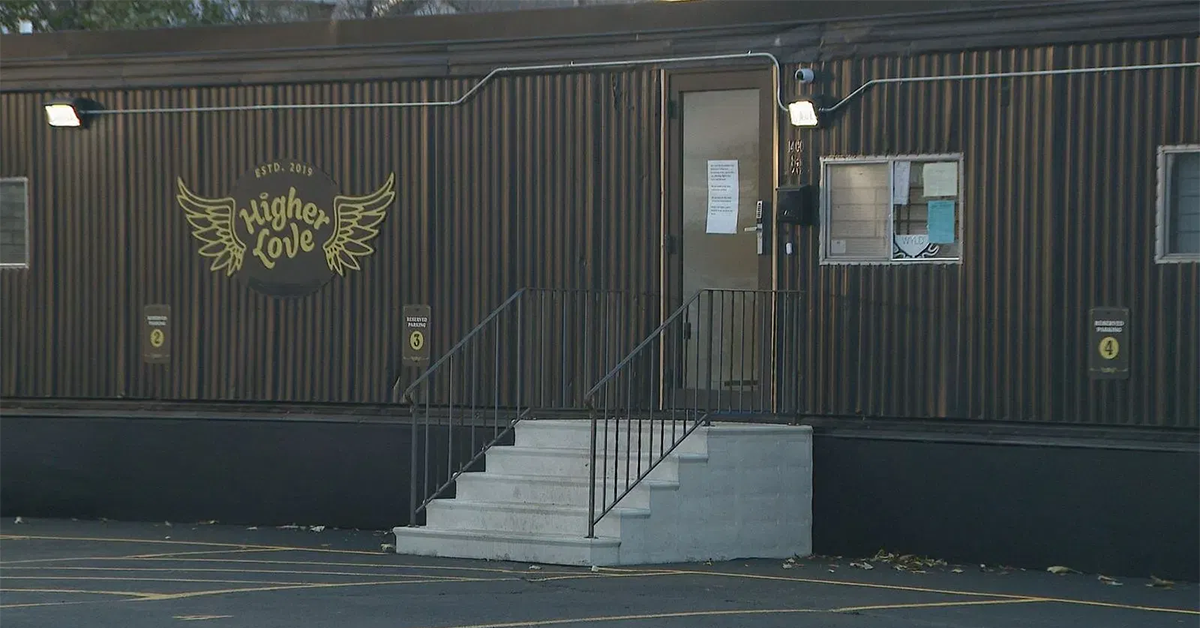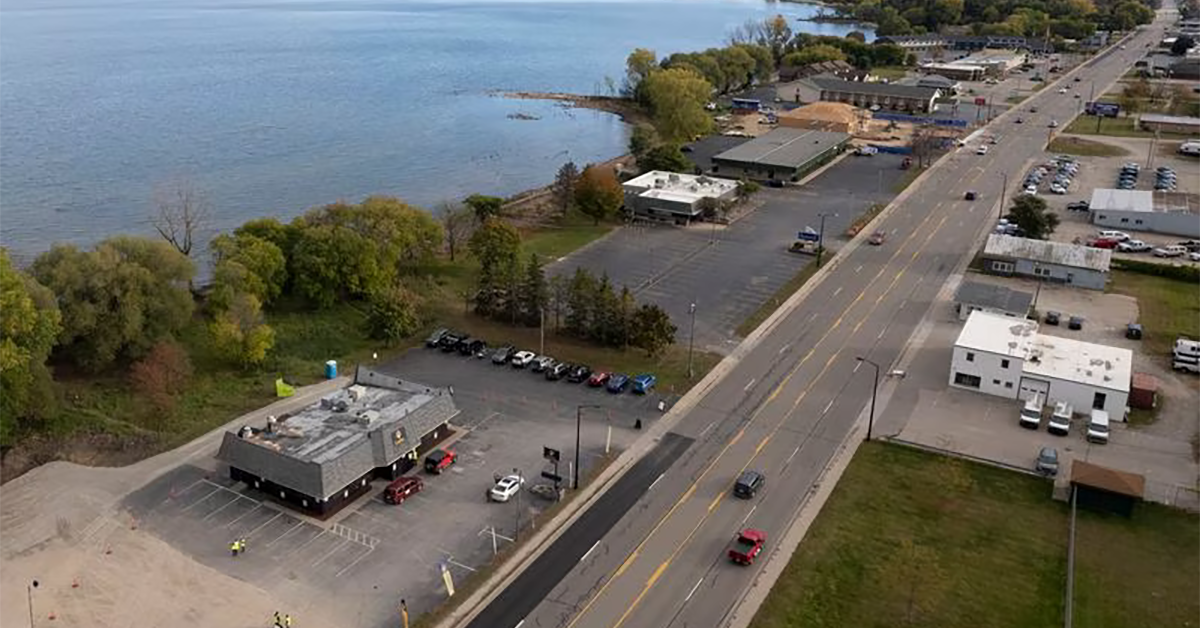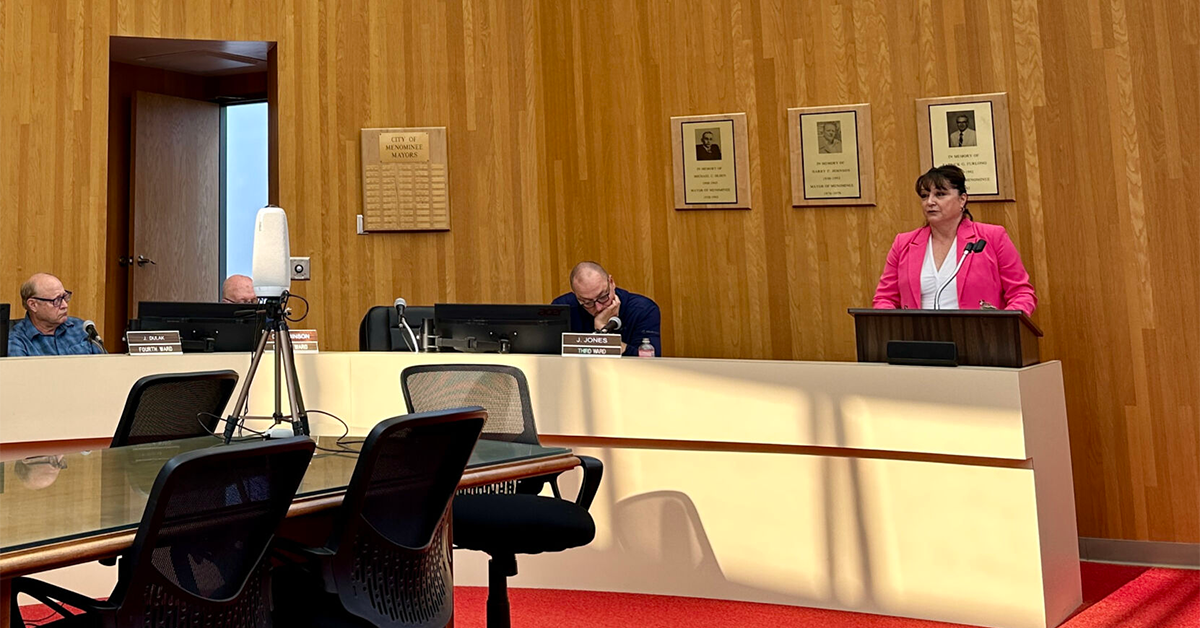Major Drug Bust at Grand Rapids Smoke Shops Tied to Wisconsin Murder Case

In a recent operation, Grand Rapids police conducted searches at two local smoke shops as part of an investigation related to a homicide case in Milwaukee, Wisconsin. The suspect in the case, Julian Kelley, who is now in custody, was reportedly a frequent visitor to both locations of Flavors Smoke Shop, situated at 517 Leonard St NW and 2332 Division Ave S, as per the Grand Rapids Police Department.
During the search, authorities discovered a significant amount of illegal substances. This included over 30 pounds of bulk marijuana, numerous retail-sized packages of marijuana buds, THC vape cartridges, and THC-infused edibles. Additionally, stolen property was recovered at the scene. Some of the seized items are believed to be similar to products recently stolen from legally operating dispensaries in the area.
According to police reports, the Flavors Smoke Shop locations are not authorized to sell cannabis or THC products.
Chief Eric Winstrom of the Grand Rapids Police Department expressed satisfaction with the operation, particularly as it supported the Milwaukee police in their murder investigation and revealed criminal activities affecting the Grand Rapids community. He anticipates further developments and potential arrests as the investigation proceeds, praising the collaborative effort of the detectives and local law enforcement agencies involved.
Court Order Lifted, Menominee's Marijuana Shops Resume Business

The temporary closure of three marijuana dispensaries in Menominee, which impacted a significant portion of the local cannabis market, has ended after a 10-day halt. The affected dispensaries - Higher Love, Lume Cannabis Company, and Nirvana Center - had been forced to cease operations due to a court order, resulting in temporary unemployment for nearly 70 workers.
A crucial court hearing took place on Monday, scrutinizing the validity of the order that initially caused the shutdown. Circuit Court Judge Mary Barglind reviewed the situation, acting on a request from the city of Menominee for clearer understanding regarding the directive issued on November 3rd.
This legal tussle traces back to 2021, when Menominee chose to grant marijuana retail permits exclusively to two dispensaries, Rize and The Fire Station. This decision was met with legal challenges from dispensaries that were initially denied permits. Subsequently, following changes in the city council, a new ordinance was enacted, leading to the authorization of permits for those previously excluded dispensaries. This change sparked further legal action from Rize and The Fire Station, culminating in the recent court developments.
Legal Tug-of-War Leads to Shutdown of Menominee Cannabis Shops

The simmering legal conflict in Michigan's Upper Peninsula has reached a boiling point as Menominee Circuit Judge Mary Barglind issued a definitive order on Friday, November 3rd, to close three prominent cannabis dispensaries embroiled in a contentious legal tussle. This latest development comes as a significant blow to Lume, Higher Love, and Nirvana Center—prominent players in the Michigan marijuana market with an established presence across the state.
Lume, a dominant force with nearly 40 statewide locations, Higher Love, operating six stores in the U.P., and Nirvana Center, with 13 other Michigan outlets, have been instructed to halt their operations immediately. This directive aligns with Judge Barglind's prior preliminary injunction from September 26th, which was intended to preserve the "status quo" of cannabis business activities in Menominee amidst a lawsuit involving competitors Rize, The Fire Station, and a ballot committee. This legal skirmish indicates a broader marijuana "turf war" in the city, where the initial two licensed shops—Rize and The Fire Station—are challenging the presence of six additional dispensaries aiming to stake their claim in Menominee's burgeoning market.
In an unfolding drama, the city of Menominee faces the complex issue of how to handle businesses already issued licenses in light of the court's ruling. While the city chose not to shutter these establishments, the court's clarification on October 17th declared unequivocally that businesses not operational by September 26th at 1 p.m. were not permitted to commence sales. This order has been flagrantly disregarded, prompting Rize, through representation by the Mike Cox law firm, to request judicial intervention.
Attorney Michael A. Cox, representing Rize, emphasized the court's adherence to evidence and law in its decision to close the dispensaries which had defied the court's mandates. He criticized the three companies for hiring employees under false pretenses, knowing their operations were in legal jeopardy. Before the court's clarification, however, the three businesses in question had already initiated operations, albeit in a limited capacity with curbside sales or through discreet retail openings.
Despite official reports stating that none of the dispensaries were operational by the crucial September 26th deadline, affidavits and statements from the businesses themselves paint a conflicting picture, complicating the enforcement of the court's orders.
The roots of the dispute trace back to a legal battle initiated when the Menominee City Council voted to establish a new marijuana licensing ordinance, thereby permitting the opening of at least six new cannabis businesses. This move contradicted the expectations set by a previous ordinance that granted exclusive operating licenses to Rize and The Fire Station. The latter's business plans were delayed due to litigation from other marijuana enterprises, including the three now facing closure.
Following a settlement agreement that granted licenses to these companies and a sixth entity, Rize and The Fire Station mobilized a ballot referendum to potentially overturn the settlement. In a controversial turn, the City Council employed a strategic maneuver to block public voting, invoking a clause that prohibits referendums on funding-related ordinances.
Amidst these legal entanglements, The Fire Station and Rize opened their doors in July and August, respectively. Meanwhile, the lawsuit claims violations of the Open Meetings Act by the City Council and questions the legitimacy of the new marijuana licenses issued.
The ongoing saga places the City of Menominee in a precarious position, as the legal fees of the city are underwritten by the very dispensaries now under the judicial microscope—a settlement stipulation that has raised eyebrows and court objections.
As the community awaits a hearing scheduled for November 15th, stakeholders on all sides are preparing their arguments regarding the future operations of these dispensaries, ahead of a permanent injunction hearing set for February 22nd. The outcomes of these legal proceedings will shape the landscape of the marijuana industry in Menominee, impacting businesses, consumers, and the governance of the city's cannabis policy.
With parties maintaining a guarded stance, the future of cannabis operations in Michigan's U.P. hangs in balance, awaiting Judge Barglind's final ruling that will determine the fate of these embattled dispensaries.
Billion-Dollar Battle Ensues as Soul Tribes Fights for Its Constitutional Rights

In a pivotal development that could reshape the landscape of religious freedoms and cannabis legality, Soul Tribes International Ministries, a religious organization recognized for its distinctive spiritual practices involving the sacramental use of Sacred Mushrooms (Psilocybin), has initiated a $1 billion lawsuit against the City of Detroit and its Police Department. The legal action alleges intentional infringement of the organization's constitutional rights pertaining to the free exercise of religion and expression.
In the preceding month, Detroit authorities conducted a raid and subsequently lodged what is being termed as a groundless and prejudiced nuisance lawsuit against Soul Tribes and its affiliates for distributing its Holy Sacrament, Sacred Mushrooms, to its members. The City's Verified Complaint categorizes this genuine religious practice as an "unlawful" activity as per the Michigan Nuisance Statute, even though the statute does not explicitly define the term.
Soul Tribes, after a meticulous search, opted to engage "Cannabis Counsel," a Detroit-based law firm known for its expertise in ensuring compliance and legality concerning Cannabis and other controlled substances. Furthermore, Soul Tribes enlisted the services of the religious free exercise specialist, Attorney George "Greg" Lake, who is licensed in Texas and Louisiana and has been permitted by the Michigan Court to represent the organization. Lake's specialization lies in advocating for the free exercise of religion and the sacramental use of psychedelics/entheogens.
The lawsuit seeks $1 billion in economic damages, along with injunctive and declaratory relief from Hon. Patricia Fresard's preliminary injunction dated November 16th, 2023, which mandated the temporary closure of the Church's building pending a comprehensive trial. This landmark case delves into intricate matters related to free exercise rights under both State and Federal constitutions, the federal Religious Land Use and Institutionalized Persons Act, and 42 U.S.C. § 1983 claims alleging deliberate infringement of the Church's free exercise rights by the City and its employees.
Shaman Shu, the spiritual leader of Soul Tribes, underscored the importance of the ongoing legal battle, stating, "Our commitment is unwavering in defending the religious freedoms of our Church and all individuals in the nation seeking communion with the divine through the careful and respectful use of psychedelic sacraments, a practice rooted in ancient traditions."
Interestingly, 60% of Detroit's populace had endorsed Proposition E in 2021, which allowed the activities currently under scrutiny. Despite this, Soul Tribes contends that the city's actions, including the unprecedented raid of a place of worship, indicate targeted discrimination based on the organization's beliefs and practices.
The Church highlights the contrast between the city's aggressive actions against it and the ongoing fentanyl, opiate, and meth crises. Soul Tribes' legal battle seeks to address the damages, both monetary and spiritual, incurred due to the city's actions, which it believes to be in excess of $1 billion.
The legal team representing Soul Tribes, spearheaded by Attorney Thomas Lavine of Cannabis Counsel and Attorney George Lake, is poised to zealously advocate for the protection of the Church's religious freedoms, including their sincere use of Sacred Mushrooms, under both Michigan and United States Constitutions and laws.
As of now, the City of Detroit has yet to issue a response to the lawsuit. Soul Tribes International Ministries continues its unwavering pursuit to ensure that religious practices involving psychedelics are safeguarded and perpetually upheld in accordance with constitutional guarantees and legal statutes.
Trial Looms for Man Accused of Dragging State Trooper in Jackson Traffic Stop

In a recent incident that has captured the attention of Michigan's cannabis community, a Detroit resident is set to face trial after a dramatic confrontation with a Michigan State Police trooper in Jackson. The events unfolded on September 24th, when Tavion William Beasley, a 21-year-old man, was pulled over during a routine traffic stop that escalated into a high-stakes situation.
Court documents indicate that Beasley is currently facing multiple felony charges, including assault with intent to murder, carrying a concealed weapon, third-degree fleeing police, resisting arrest causing injury, and felony firearms. These charges have been brought forward after an in-depth examination of the circumstances surrounding the traffic stop.
On the morning in question, at approximately 9 a.m., a trooper observed a maroon Chrysler 300 traveling at an alarming speed of 92 mph on U.S. 127. The car was subsequently pulled over on South Street near Michigan Avenue. The incident, captured on a body camera video, reveals the tension that quickly escalated during the interaction.
Upon approaching the vehicle, the trooper requested Beasley's driver's license, registration, and insurance. The trooper quickly noticed the scent of burning marijuana inside the car and instructed Beasley to exit the vehicle. Beasley acknowledged the presence of marijuana and initially complied with the trooper's instructions. However, the situation took a turn when Beasley, while conversing on his cell phone, returned to his car despite the trooper's orders.
The body camera footage shows the ensuing chaos as Beasley sped away with the trooper still partially inside the vehicle, pleading for him to stop. The trooper clung to the car for a perilous 41 seconds before Beasley stopped to let her out and then sped off again. The dislodged body camera continued to record from inside the car, capturing Beasley's frantic conversation admitting to pushing the trooper out.
The trooper sustained minor injuries and was treated at Henry Ford Jackson Hospital before being released. Beasley, after being identified as a suspect, turned himself in following discussions with his family, who encouraged him to cooperate with the authorities.
The trial is set to take place in the Jackson County Circuit Court, presided over by Judge Thomas Wilson. Beasley's bond has been set at $500,000, and he remains in custody at the Jackson County Jail.
While this incident echoes a similar case previously reported in Jackson County's Summit Township, it brings to light the ongoing discussions surrounding the responsible use of marijuana and the challenges faced by law enforcement. The case underscores the need for clear understanding and adherence to the laws governing cannabis use while driving and emphasizes the potential consequences of neglecting such responsibilities.
Legal Battles in Menominee Over New Marijuana Dispensaries

The city of Menominee finds itself caught in a web of legal challenges, as it grapples with recent lawsuits involving newly established marijuana dispensaries. These legal skirmishes shed light on the complexities of marijuana business licensing and its impact on local communities.
Background: The Licensing Controversy
In 2021, amidst a competitive bid, Menominee approved recreational marijuana permits solely for two dispensaries: Rize and the Fire Station. This decision drew criticism from several applicants, including the parent entities of dispensaries Lume, Higher Love, and the Nirvana Center. These companies subsequently sued the city, leading to a prolonged legal battle.
The crux of the issue stemmed from the claim that Menominee had not been transparent in its selection process. To the surprise of many, especially after the courts backed Menominee's actions, the city chose to settle the lawsuit with the aggrieved companies earlier this year. Mayor Stegeman expressed his perplexity over the settlement decision after a 6-3 council vote on May 24th, noting, "I cannot explain settling a lawsuit we won."
Following the settlement, Lume, Higher Love, and the Nirvana Center received licenses, with plans to establish their dispensaries in close proximity to Rize and the Fire Station.
A Second Legal Challenge
However, in a twist, Rize and the Fire Station hit back with a lawsuit of their own in August. They accused the city of contravening the Open Meetings Act during several discussions centered around the marijuana ordinance. As a result, an injunction was ordered to halt the city from progressing with the new ordinance.
The subsequent ambiguity surrounding this order led to lawyers seeking clearer instructions. On October 17th, Judge Barglind weighed in, specifying that any dispensary which was not operational by 1 p.m. on September 26th should remain closed. This directive was given on the grounds that opening any further dispensaries would necessitate the city continuing its role in the new ordinance.
However, there's a hitch. An email from a lawyer representing Rize to the city clerk on September 27th revealed that upon the city manager's request, the city building inspector had checked Lume, Higher Love, and Nirvana and found none to be operational. Despite this observation, these companies have countered by asserting that they were indeed open prior to the specified date.
Judge Barglind has since made it clear that the court will not undertake any fact verification, leaving the city to discern the truth.
Following the September injunction, Higher Love expressed its intention to join the city's side in the lawsuit. Nirvana echoed this move after the October clarification.
Seeking Clarifications
The present state of affairs has left many seeking answers. James Martone, who represents the Fire Station, confirmed that he reached out to City Manager Brett Botbyl to understand if Menominee plans to enforce the injunction against the newly licensed dispensaries. However, his queries remain unanswered.
This evolving situation underscores the intricate dynamics of the marijuana business in Menominee. As stakeholders await clarity, the broader implications of these legal battles on the future of the marijuana industry in the city hang in the balance.


 Helpful Links
Helpful Links